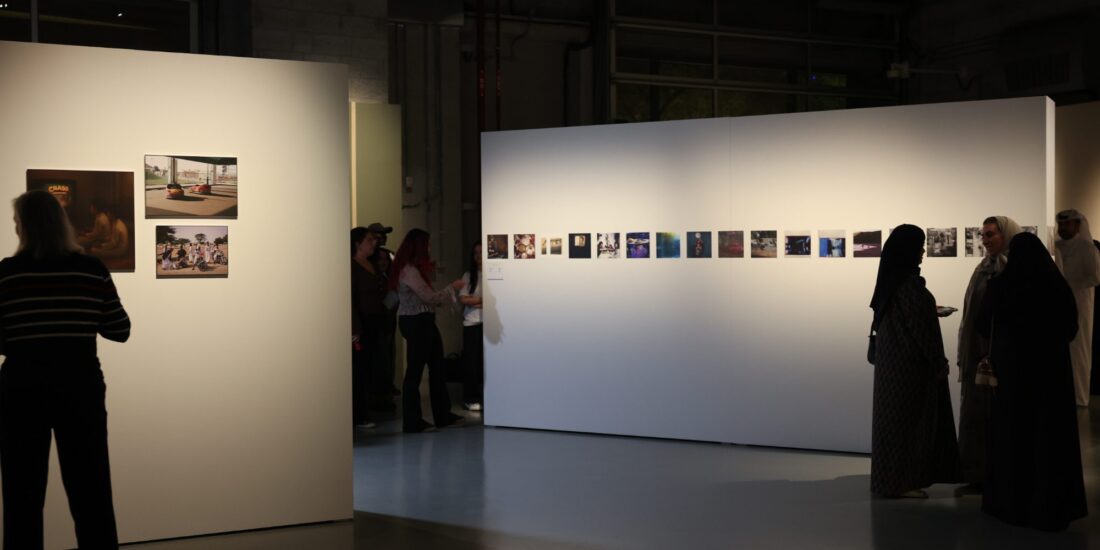The Wael Shawky Vision for Art Basel Doha 2026
“Art fairs have long been marketplaces, not meeting places for artists,” says Wael Shawky, Egyptian artist, educator and now Artistic Director of the inaugural Art Basel Qatar 2026. In this exclusive conversation with SCALE, he speaks candidly about bridging the gap between artists’ and commerce, the power of education in shaping art ecosystems, and why the region needs more than just museums, it needs an art movement. As he sets the tone for Art Basel Qatar 2026 in a bold new format themed “Becoming”, he invites us into the vision: partly a plan, partly an artists’ dream with a roadmap that puts art at its centre while being the stepping stone for a healthy and thriving art ecology in the region and beyond. By Sindhu Nair
Art Basel revealed in July 2025, the first details of its newly launched fair in Qatar. Art Basel Qatar will unfold in M7 creative hub in the heart of Doha’s Design District from February 5 to 7, 2026, with Preview Days on February 3 and 4, 2026. For its inaugural edition, Art Basel Qatar will depart from the traditional booth model to introduce a new fair format grounded in artistic vision and conceptual rigour.
Art Basel Qatar also announced the appointment of internationally acclaimed, Egyptian-born artist Wael Shawky as Artistic Director for the first edition of the fair. Together with Vincenzo de Bellis, Art Basel’s Chief Artistic Officer and Global Director of Fairs, Wael will lead the curatorial vision of the 2026 edition and guide the gallery selection process, in consultation with the fair’s dedicated Selection Committee. He brings deep regional insight and a multidisciplinary approach that aligns with the fair’s ambitions: he founded the educational space MASS Alexandria in Egypt and plans to transform Qatar Museum’s Fire Station into a platform for educational programs.
SCALE speaks to the man behind this new direction, Art Basel, Artistic Director Wael Shawky, to delve into the intentions behind this ambitious shift, one that seems to have endeared him further to the artistic community he is a part of.
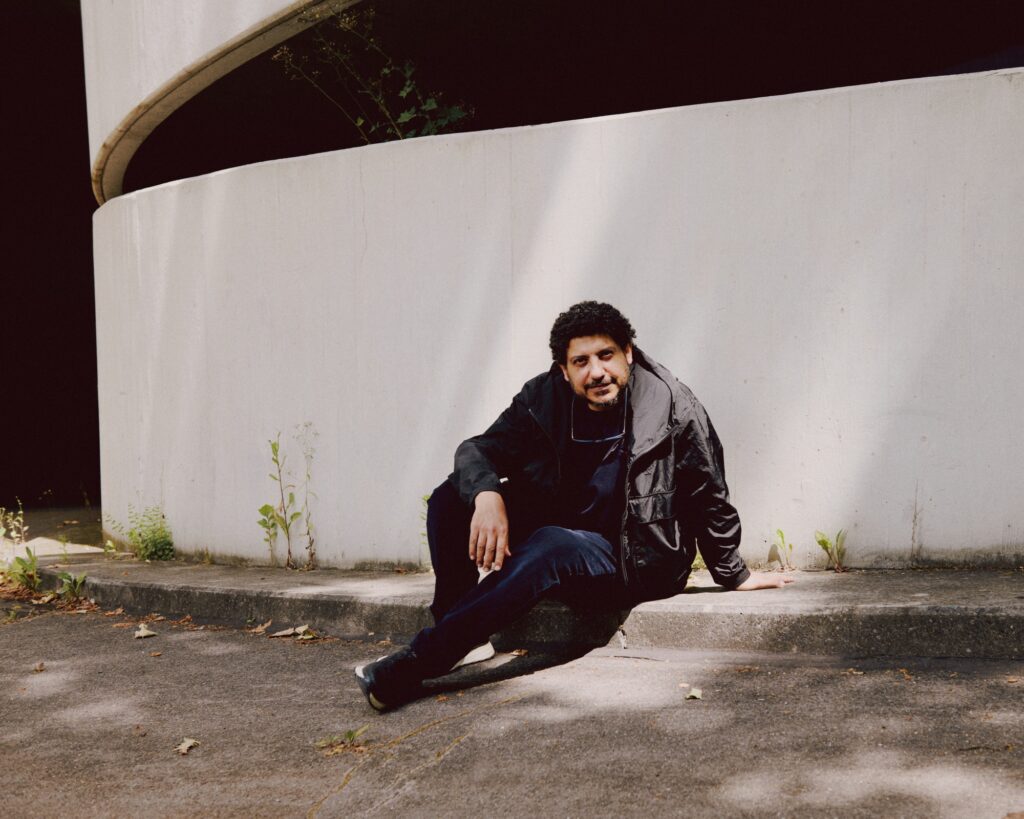
Wael Shawky, Artistic Director, Art Basel Qatar, photographed in Basel in June 2025. Photography by Matthieu Croizier for Art Basel. Courtesy of Art Basel
SCALE: How excited are you about the new format for Art Basel Qatar? What are the changes you’re most looking forward to?
Wael: I was just discussing this yesterday with some of my colleagues. Most artists I know, including myself, don’t really like art fairs. We don’t feel connected to the fairs. It is usually the galleries who take our work and display it. I think it’s a good idea to shrink the gap between the artists and the art fair. Artists need to be part of the Fairs, not necessarily to run it, but to have their vision represented. Otherwise, it becomes just a market, separated from the artistic vision.
When they offered me this curatorial position, only for the first edition, by the way. And I think that it is extremely important, especially for the region and for Doha. This is part of my wider interest in setting up educational platforms, like what I did in Egypt with MASS Alexandria, or with the Fire Station in Doha, which is now more of a school and an educational platform.
Coming from Egypt, I’ve seen the road-blocks, which we see in the Gulf region also, in building contemporary art institutions. You need education, for both artists and audiences, and to complete this cycle, you need a professional market to make art accessible and economically profitable for all. For me, Art Basel is the professional market that will complete the cycle. It is therefore, extremely important and an honour to be part of this pioneering Fair.
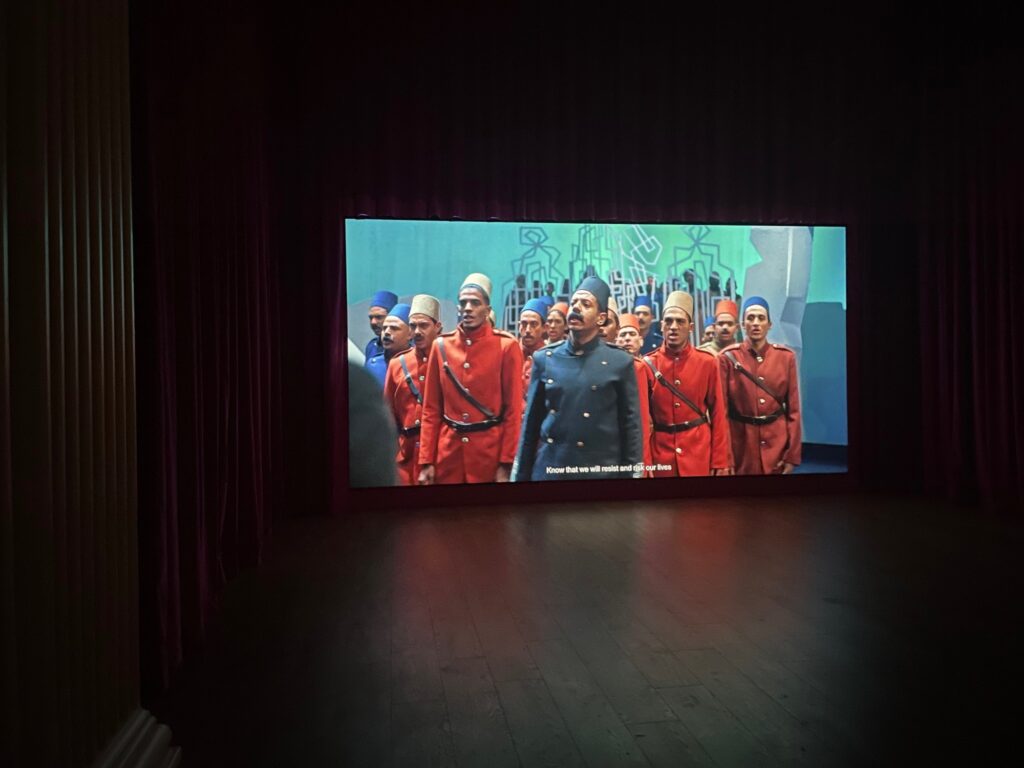
Work of Wael Shawky, Drama 1882; Installation view at the 60th International Art Exhibitions – La Biennale di Venezia, 2024. @Courtesy Wael Shawky
SCALE: You mention a gap between artists and the art fair. Do you think this new format will help close that gap, especially because you (artist) are curating it?
Wael: I’ll try my best. I know there are still a lot of restrictions because it is finally an art fair, and that means sales for the galleries. But for me, it’s more about quality. I’ll try to bring as much quality as possible in the art fair. That is my main aim.
Even though there are rules set by the Fair, I want the fair to have a vision, so that artists feel involved, not excluded.
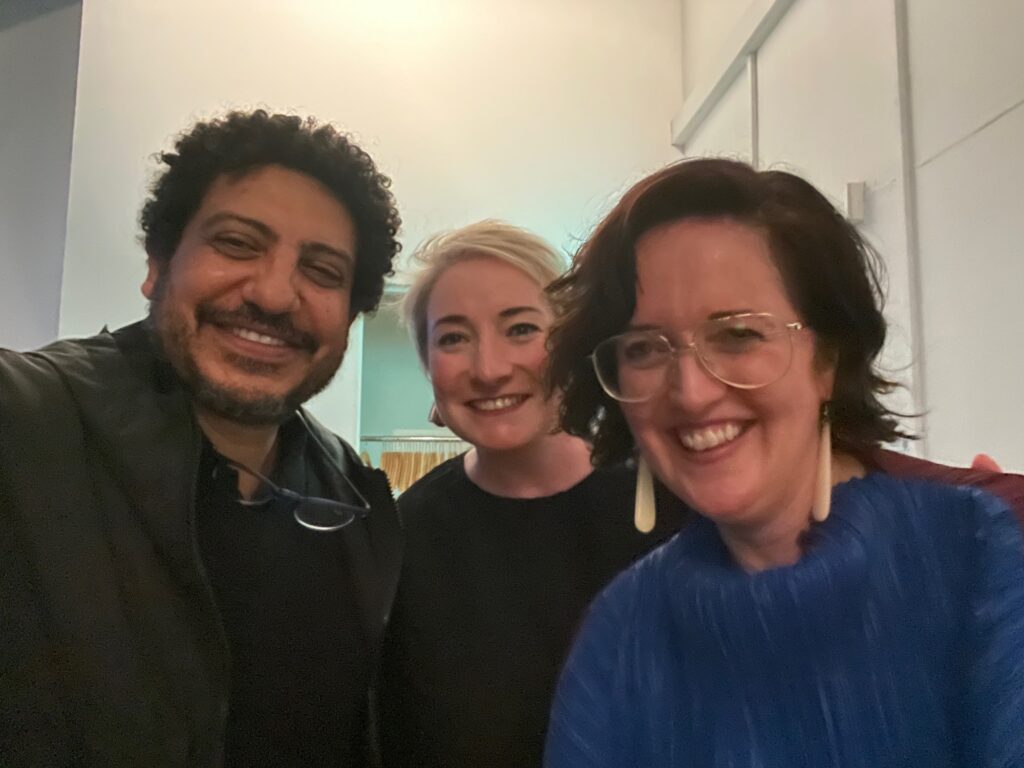
Wael and his strong support group, the artistic community that he is a part of.@Courtesy Wael Shawky
SCALE: When SCALE posted the news of your curatorship on social media, there was an overwhelming positive response from your art community! Artists and art professionals seem to be looking to you for a change. Do you feel that responsibility?
A: Yes, I do, and alhamdulillah. But honestly, I don’t think it should be only my responsibility. It should be shared by artists in general. We should be connected in its creation. We shouldn’t keep separating roles, curators here, gallerists there, artists somewhere else.
I personally work with four galleries and respect them deeply. But I also believe artists should be involved in how their work is exhibited. I make sure when my work is exhibited, that it is exhibited by galleries in a way that its context and the soul of the work shines through to the visitor. That way, the soul of the work isn’t lost. I hope we can achieve that here in Doha as well. I want that synergy to be shared by all the artist and the Fair to be a place where creatives come together to benefit each other.
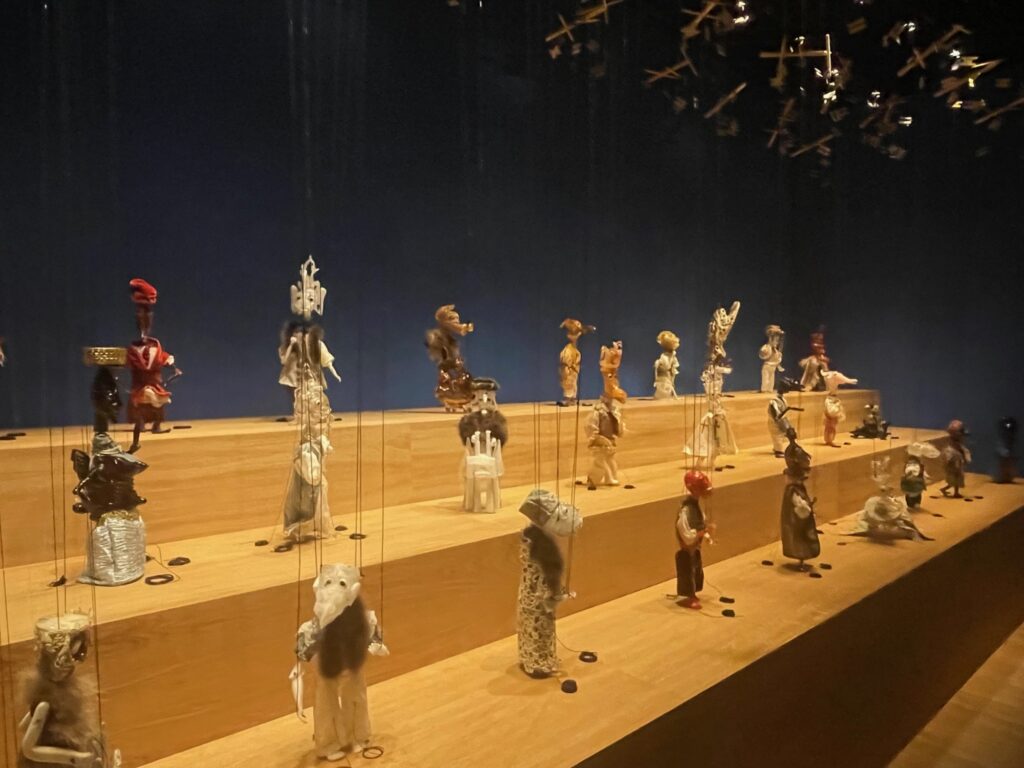
Works of Wael Shawky from the Cabaret Crusades series.@Courtesy Wael Shawky
SCALE: One interesting change is that each gallery will bring only one artist for the new format at Art Basel Qatar. That’s quite new, right?
WAEL: Yes, exactly. The scale is smaller than Art Basel in Switzerland or Miami. Each gallery will bring just one artist, hopefully with one project. So, it will not be like a bazar or supermarket. That means we’re not just showcasing everything, it will be more curated, more focused. It won’t feel like a supermarket.
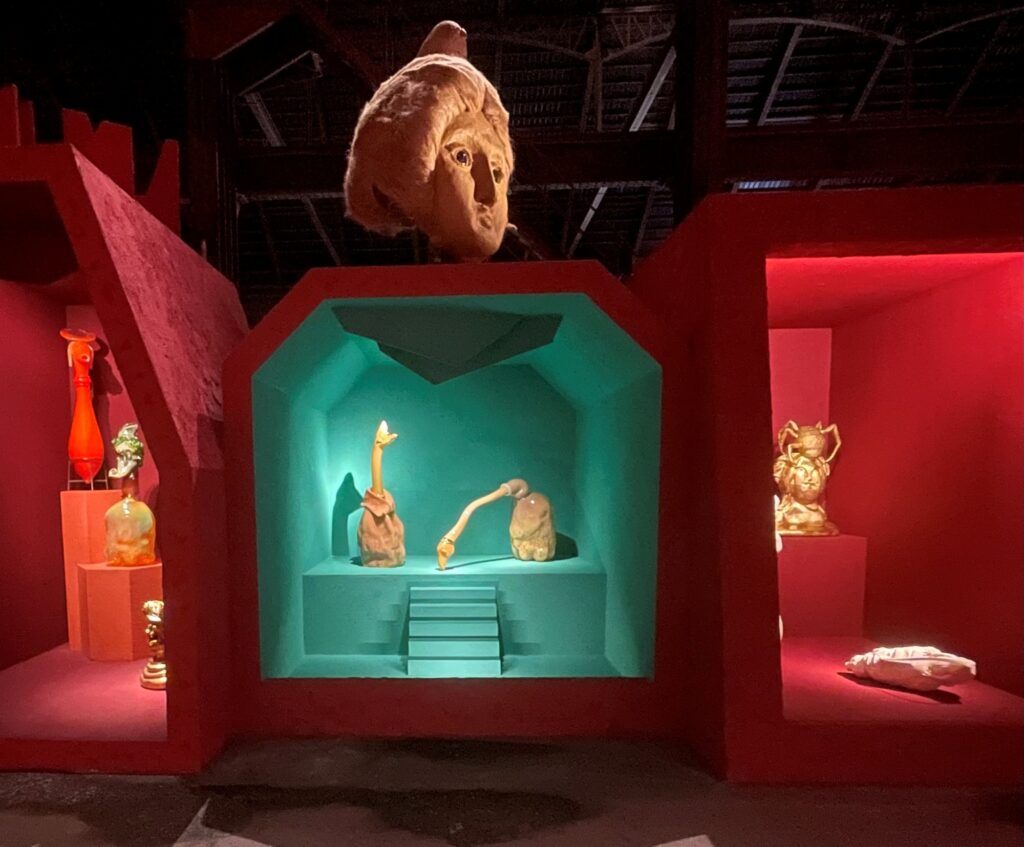
Image @Courtesy Wael Shawky
SCALE: But does this limit opportunities for other artists, especially since it’s the first time the fair is being held in the region?
Wael: Yes, many artists would like to participate, but for this first edition, I think it’s important to set a direction. If we can reach the level of quality we’re hoping for, this edition can serve as a roadmap for the future. Next year might be completely different, perhaps with a new curator. But this year, we need to establish why this fair is happening and what it means.
SCALE: Can you tell us more about the concept this year? You mentioned the theme is “Becoming.”
Wael: Yes. In the beginning, I thought about calling it “Dream-scape,” but “Becoming” felt right. It reflects how societies, like those in the Gulf, are always in transition, dreaming of evolving from one system to another: from fishermen to oil production, from Bedouin life, tribalism to urbanism.
These transformations aren’t unique to the Gulf region, Korea, Egypt, many places share them. Egypt, for instance, is transitioning from an agricultural society to an urban mindset. The landscape plays a major role in these dreams of evolving. That’s the idea behind “Becoming.”
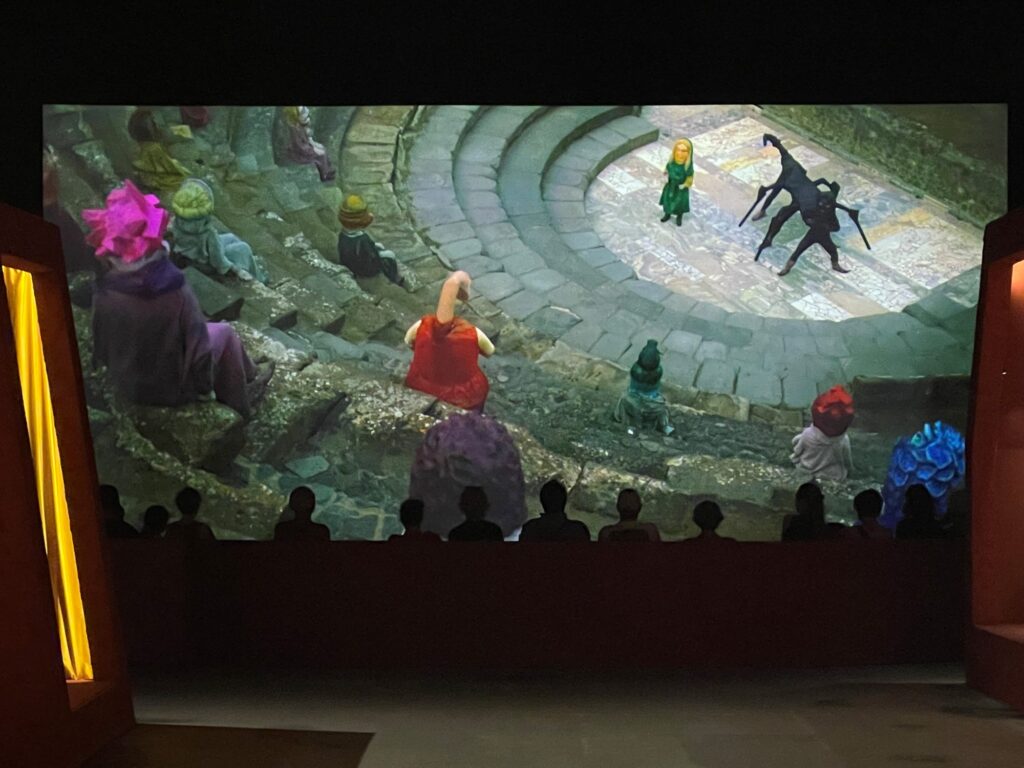
Image @Courtesy Wael Shawky
SCALE: Is Art Basel Qatar open only to artists in the MENA region or globally?
Wael: It’s an international art fair. Some of the world’s most important galleries will be here. But I’m also looking to include smaller galleries from the MENA region. Some artists don’t have gallery representation, or their galleries can’t afford to participate. I’m still trying to figure out how to include them. Let’s see.
Its is evident that the time has come for art to sustain itself and it is time for the students to have something to hope for. So, we will find a way to embody the under-represented.
SCALE: How will having Art Basel in Qatar help the local art scene?
Wael: Doha is positioning itself as a cultural hub. Major art institutions are being built, including the Art Mill Museum, possibly opening by 2030. They already have an incredible collection of modern and contemporary Arab art.
In Egypt,on the contrary, there’s not a single state-run contemporary art museum. Everything is private. So, I built MASS Alexandria to try and help and do my bit for the fraternity that nurtured me. But these are individual efforts. In Qatar, the government is doing it, and that’s very powerful.
But having said that, that alone is not enough to help foster an art ecosystem. I said earlier, to complete the art ecosystem, you need education, institutions, and a professional market. And Art Basel is equally important to bring the focus on art and to create an industry which will finally make the artist self reliant.
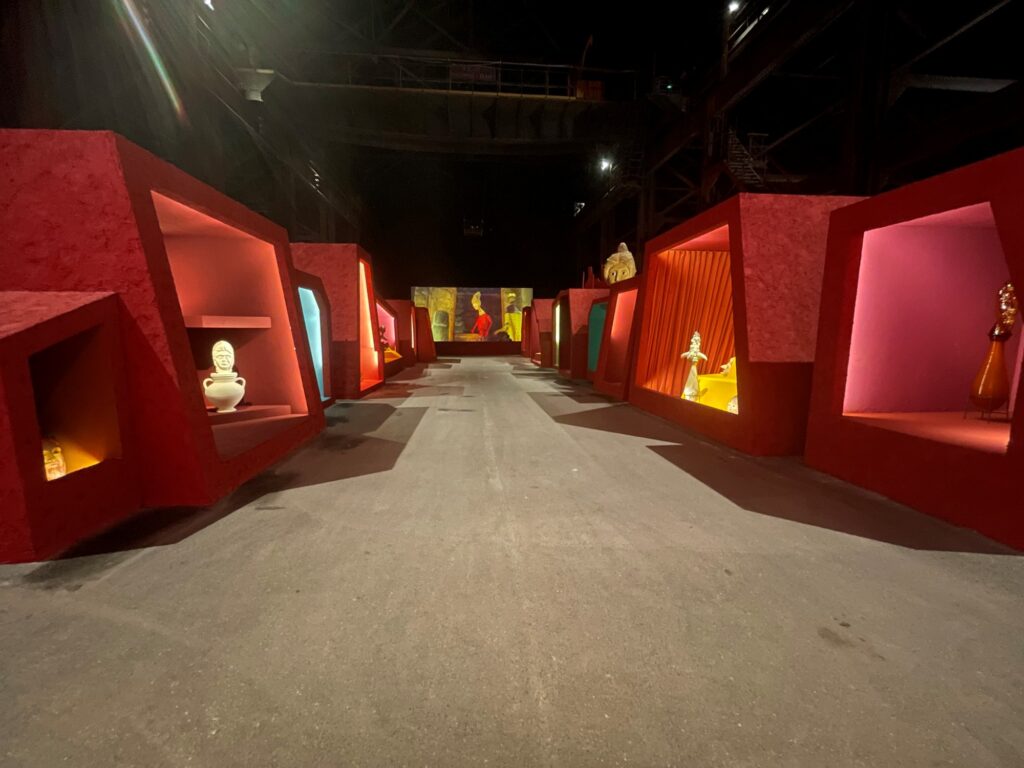
Image @Courtesy Wael Shawky
SCALE: But don’t you think there’s a lack of private galleries in Doha? Most of it is led by Qatar Museums. Doesn’t an ecosystem need both public and private participation?
Wael: Yes, I completely agree. And I hope Art Basel will inspire people to start private galleries here. You can’t apply to Art Basel as an artist; you need a gallery. So, this could encourage the growth of professional galleries in Doha. Not just in Doha, but even in Egypt, which has a much older art history, doesn’t have many galleries that take part in the Art Basel. In reality, there is only one gallery that participates in the Art Basel.
SCALE: Your own artistic practice weaves in storytelling, myth, and Islamic and Arab narratives. How will that influence your curatorial approach? Will you also show your work?
Wael: No, I won’t show my own work. I never teach my own art in the platforms I create, like in Fire Station or MASS Alexandria. I invite others to share ideas. My work is intuitive and personal; it’s better for the platform if I bring in others.
Similarly, in Art Basel, I want to curate a space with a clear concept and then select the best proposals from galleries. If this were a Biennale, I’d have more control. But it’s a fair, there are market constraints. I’ll do my best within those limits.
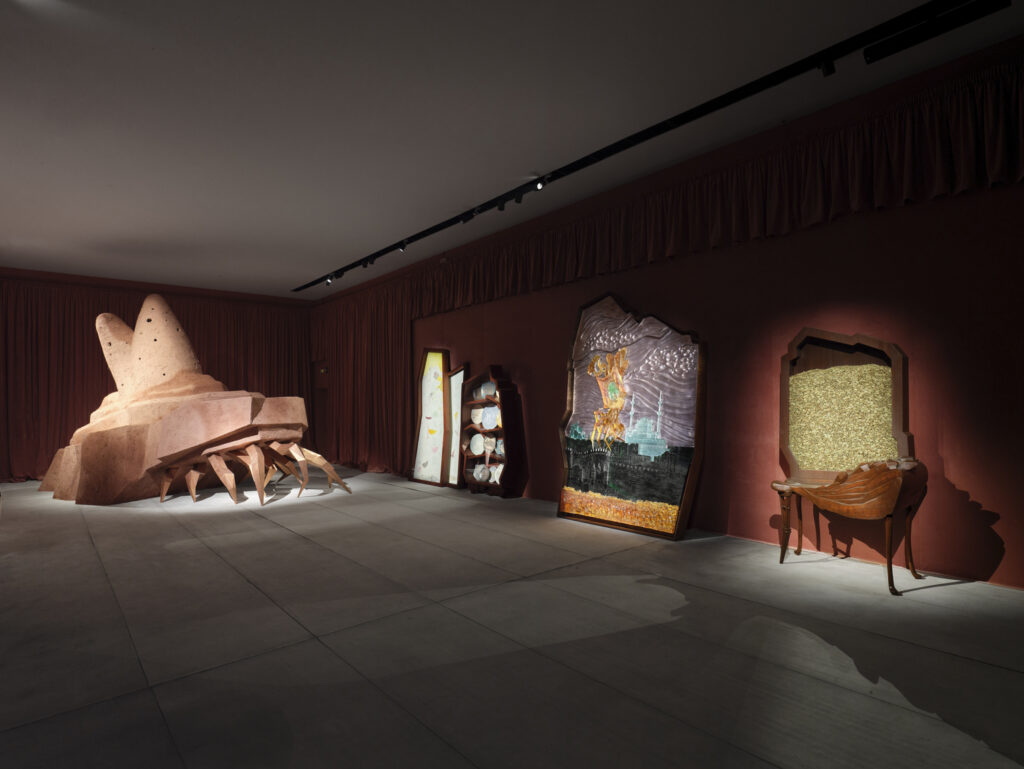
Wael Shawky, Drama 1882, Installation view at the 60th International Art Exhibition, La Biennale di Venezia 2024; @Wael Shawky, Courtesy of Lisson Gallery. Sfeir-Semler Gallery, Lia Rumma, and Barakat Contemporary.
SCALE: Will the biggest challenge for you be balancing artistic vision with the business side of the fair?
Wael: Yes. I told the global director of Art Basel that I want to focus only on the artistic side. They agreed to handle the market side. They do advise me though—like, “this artwork is great, but it may not sell.” So, we’re trying to find that balance.
SCALE: What is the one thing you hope visitors will take away from Art Basel Qatar?
Wael: I hope they leave with thoughts, discussions, and analysis. I want Art Basel to spark intellectual discourse, not just be a market or a business event. We’re planning many talks, with curators, gallerists, artists, to raise the level of conversation.
We need to bring artists back into these fairs, to add their creativity, not just to sell their work.




